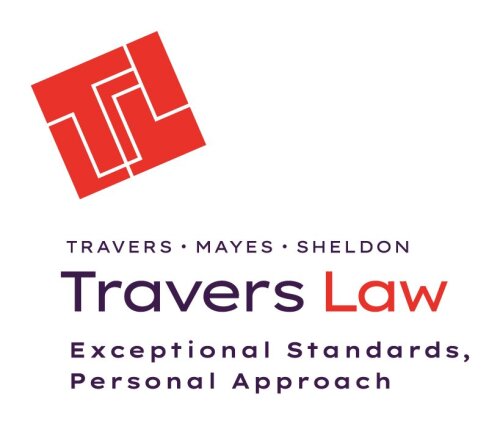Best Lawsuits & Disputes Lawyers in Canada
Share your needs with us, get contacted by law firms.
Free. Takes 2 min.
Or refine your search by selecting a city:
List of the best lawyers in Canada
Canada Lawsuits & Disputes Legal Articles
Browse our 1 legal article about Lawsuits & Disputes in Canada written by expert lawyers.
- Small Claims Court in Ontario Canada - Guide & Process FAQ
- The financial limit for filing a lawsuit in Ontario Small Claims Court is $35,000 CAD, excluding interest and court costs. Plaintiffs generally have exactly two years from the date the dispute arose to file their claim under the Ontario Limitations Act. Winning a judgment does not mean the court will... Read more →
About Lawsuits & Disputes Law in Canada
Lawsuits and disputes law in Canada encompasses a wide range of legal fields, including civil litigation, family law, employment disputes, and commercial litigation. The Canadian legal system is built on a combination of common law, inherited from British legal tradition, and civil law, predominantly in the province of Quebec. The process for resolving disputes often involves negotiation, mediation, or court proceedings. Canada prioritizes methods of alternative dispute resolution (ADR) to reduce the burden on the courts and to facilitate more amicable settlements between the parties involved.
Why You May Need a Lawyer
There are several situations where you may require legal assistance in lawsuits and disputes:
- Contractual Disputes: When you are involved in a disagreement over the interpretation or enforcement of a contract.
- Torts: If you believe you have been wronged or injured due to someone else's actions or negligence.
- Commercial Litigation: In business contexts, conflicts may arise over transactions, partnerships, or property rights.
- Family Disputes: Divorce proceedings, custody issues, or support obligations often require legal representation.
- Employment Disputes: Issues such as wrongful dismissal, discrimination, or non-payment of wages can arise at the workplace.
- Property Disputes: These involve issues regarding ownership, leasing, or use of real property.
Local Laws Overview
The legal landscape of Canada varies by province and territory, reflecting Canada's federal structure:
- Civil Code in Quebec: Quebec operates under a civil law system for private matters, which differs from the common law approach in other provinces.
- Limitation Periods: Different provinces have different limitation periods within which a lawsuit can be filed after an incident occurs.
- Alternative Dispute Resolution (ADR): ADR methods, such as mediation and arbitration, are widely encouraged across Canada and can be more cost-effective than court proceedings.
- Small Claims Courts: Each province has a small claims court to deal with minor civil disputes involving smaller sums of money.
Frequently Asked Questions
What is the first step in initiating a lawsuit in Canada?
The first step is usually to file a Statement of Claim at the appropriate court, outlining your case and the remedies sought.
How long do I have to file a lawsuit in Canada?
Limitation periods vary by province and type of claim, ranging generally from two to six years from the date the cause of action arose.
Can I handle a lawsuit without a lawyer?
While it's possible to represent yourself, legal cases can be complex and a lawyer can help navigate the laws and procedures effectively.
What are the costs involved in filing a lawsuit?
Costs can include court fees, legal fees, and other related expenses. Some lawyers work on a contingency basis, meaning they only get paid if you win your case.
What is alternative dispute resolution (ADR)?
ADR refers to methods like mediation or arbitration that aim to resolve disputes without going to court. ADR can be faster and less adversarial.
Can lawsuits be settled out of court?
Yes, many lawsuits are settled out of court through negotiations between the parties, often with the help of lawyers or mediators.
What happens if I lose a lawsuit?
If you lose, you may be required to pay the legal costs of the winning party, along with any judgment awarded against you.
Do I have to attend court in person?
While some court appearances may require in-person attendance, many matters can be handled through written submissions or virtual hearings.
Can a court decision be appealed?
Yes, you can appeal a court decision if there are grounds such as legal errors in the trial process. Appeals must be filed within a specified time frame.
What is a class action lawsuit?
A class action lawsuit allows a large group of people with common claims to file a lawsuit collectively, which can be more efficient and cost-effective for individuals.
Additional Resources
Consider consulting the following resources for further information or help:
- Provincial and Territorial Law Societies: These organizations regulate lawyers and can provide referrals and resources for finding legal help.
- Public Legal Information Associations: Non-profit groups in each province offer free legal information and education to the public.
- Canadian Bar Association: Offers a wealth of legal resources and a lawyer referral service.
- Ministry of Justice: Provides comprehensive information on the Canadian legal system and your rights.
Next Steps
If you need legal assistance in lawsuits and disputes, consider the following steps:
- Consult a Lawyer: Seek out legal advice to understand your rights, options, and potential outcomes. A lawyer can help you navigate the complex legal landscape and make informed decisions.
- Gather Relevant Documents: Assemble any relevant contracts, correspondence, and other documentation related to your dispute.
- Explore ADR options: Consider whether mediation or arbitration is a suitable alternative to litigation in your case.
- Evaluate Costs and Benefits: Discuss with your lawyer the potential costs and benefits of pursuing your case through the courts.
Taking these steps can help you effectively address and resolve legal disputes in Canada. Remember, knowledge and preparation are key components of a successful legal outcome.
Lawzana helps you find the best lawyers and law firms in Canada through a curated and pre-screened list of qualified legal professionals. Our platform offers rankings and detailed profiles of attorneys and law firms, allowing you to compare based on practice areas, including Lawsuits & Disputes, experience, and client feedback.
Each profile includes a description of the firm's areas of practice, client reviews, team members and partners, year of establishment, spoken languages, office locations, contact information, social media presence, and any published articles or resources. Most firms on our platform speak English and are experienced in both local and international legal matters.
Get a quote from top-rated law firms in Canada — quickly, securely, and without unnecessary hassle.
Disclaimer:
The information provided on this page is for general informational purposes only and does not constitute legal advice. While we strive to ensure the accuracy and relevance of the content, legal information may change over time, and interpretations of the law can vary. You should always consult with a qualified legal professional for advice specific to your situation.
We disclaim all liability for actions taken or not taken based on the content of this page. If you believe any information is incorrect or outdated, please contact us, and we will review and update it where appropriate.
Browse lawsuits & disputes law firms by service in Canada
Canada Attorneys in related practice areas.
Browse lawsuits & disputes law firms by city in Canada
Refine your search by selecting a city.















